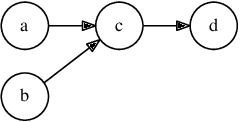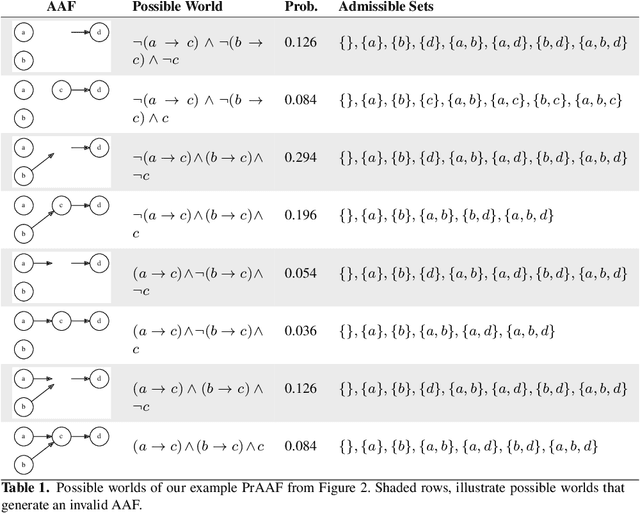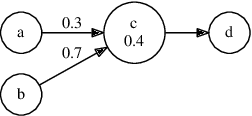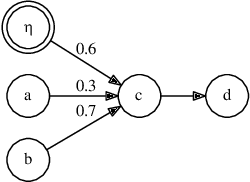Theofrastos Mantadelis
A Preliminary Report on Probabilistic Attack Normal Form for Constellation Semantics
Sep 24, 2018



Abstract:After Dung's founding work in Abstract Argumentation Frameworks there has been a growing interest in extending the Dung's semantics in order to describe more complex or real life situations. Several of these approaches take the direction of weighted or probabilistic extensions. One of the most prominent probabilistic approaches is that of constellation Probabilistic Abstract Argumentation Frameworks from Li~et~al. In this paper, we present a normal form for constellation probabilistic abstract argumentation frameworks. Furthermore, we present a transformation from general constellation probabilistic abstract argumentation frameworks to the presented normal form. In this way we illustrate that the simpler normal form has equal representation power with the general one.
SkILL - a Stochastic Inductive Logic Learner
Jun 02, 2015



Abstract:Probabilistic Inductive Logic Programming (PILP) is a rel- atively unexplored area of Statistical Relational Learning which extends classic Inductive Logic Programming (ILP). This work introduces SkILL, a Stochastic Inductive Logic Learner, which takes probabilistic annotated data and produces First Order Logic theories. Data in several domains such as medicine and bioinformatics have an inherent degree of uncer- tainty, that can be used to produce models closer to reality. SkILL can not only use this type of probabilistic data to extract non-trivial knowl- edge from databases, but it also addresses efficiency issues by introducing a novel, efficient and effective search strategy to guide the search in PILP environments. The capabilities of SkILL are demonstrated in three dif- ferent datasets: (i) a synthetic toy example used to validate the system, (ii) a probabilistic adaptation of a well-known biological metabolism ap- plication, and (iii) a real world medical dataset in the breast cancer domain. Results show that SkILL can perform as well as a deterministic ILP learner, while also being able to incorporate probabilistic knowledge that would otherwise not be considered.
 Add to Chrome
Add to Chrome Add to Firefox
Add to Firefox Add to Edge
Add to Edge